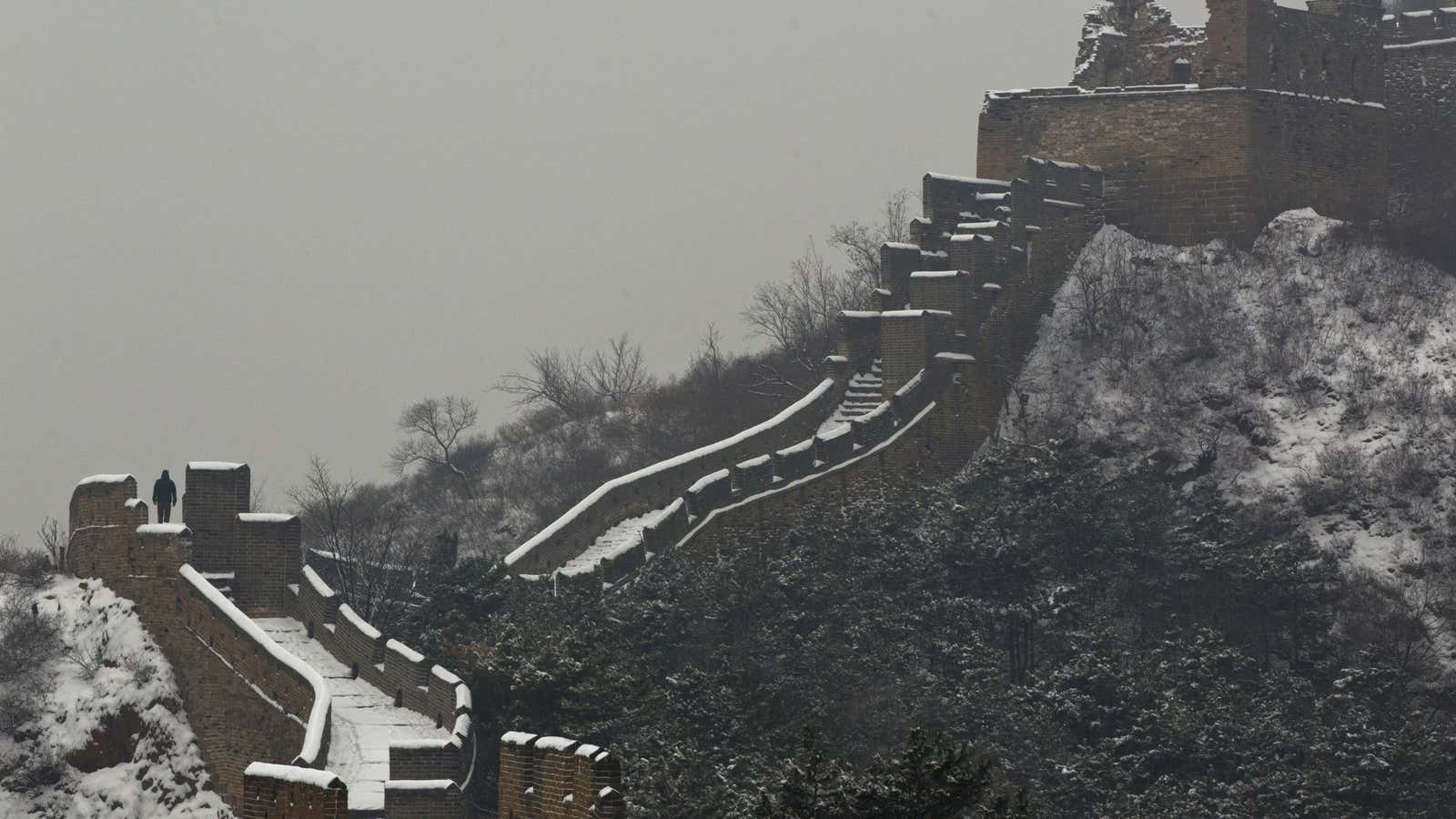The “June 4 Incident,” which the world outside of China knows as the Tiananmen Square protests, is a forbidden topic within the Great Firewall of China.
In recent years, Beijing’s enormous internet censorship program has taken aim at any words or phrases that could conceivably refer to the government crackdown that killed hundreds or even thousands of protesters in 1989. On the anniversary last year, there were reports that even mentioning the word “today” was banned.
This year the government is getting more sophisticated. The censorship monitoring group Greatfire.org reported that users of the popular Twitter-like service Sina Weibo are now able to search for “六四事件”” (“June 4th incident)” and related terms. Instead of receiving a censorship notice, as they had in the past, a page of search results appears—but it is scrubbed clean of all references to the 1989 protests. It’s a move George Orwell would have admired: If users go looking for information, they won’t find anything—and they won’t even know the information is being censored.
In a separate development, Greatfire reported that Chinese Internet regulators have also blocked access to an encrypted version of Wikipedia which had previously evaded the censors. Since 2011, Chinese Internet users who typed in “https://wikipedia.org” (with an extra “s” after “http”) were able to visit any page on Wikipedia without hindrance from the Great Firewall. Pages that are accessed using HTTP Secure are encrypted, so that censors couldn’t monitor or block certain politically sensitive pages like “Tiananmen Square protests of 1989.”
On Friday—the same day the new Sina Weibo program went into effect—China blocked a software port that the encrypted version of Wikipedia was using. The standard, non-encrypted Wikipedia is still accessible in China, but it’s stripped of the politically sensitive pages. Because of the change, Wikipedia has a tough decision to make.
Greatfire urged the non-profit group to make “HTTPS” the default for Wikipedia. If that happened, China would be forced to allow Chinese access to Wikipedia without alterations—or block it entirely. Beijing currently allows two prominent Internet services—Google’s Gmail service and the Github repository of open-source computer code—to use HTTPS, but it blocks others.
Given the Chinese authorities’ fixation on keeping knowledge of the June 4th incident out of the mainstream in the mainland, it would be a major gamble for Wikipedia to follow suit. China certainly hasn’t hesitated to cut off Wikipedia access in the past. You can read all about it (guess where)—as long as you’re not in China.
